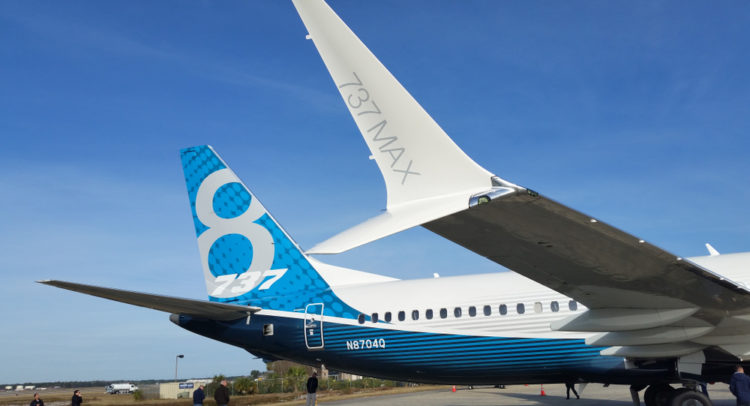Boeing’s grounded 737-MAX aircraft could be close to returning to the skies by the end of this year, after Europe’s aviation safety head told Bloomberg that it is safe enough to fly.
Invest with Confidence:
- Follow TipRanks' Top Wall Street Analysts to uncover their success rate and average return.
- Join thousands of data-driven investors – Build your Smart Portfolio for personalized insights.
The comment comes even as a further software upgrade the European agency demanded from Boeing (BA) won’t be ready for up to two years. Patrick Ky, executive director of the European Union Aviation Safety Agency (EASA) said that after test flights of Boeing’s grounded aircraft conducted in September, the watchdog is performing final document reviews ahead of a draft airworthiness directive it expects to issue next month.
The process will be followed by 4 weeks of public comment, while the development of a so-called synthetic sensor to add redundancy will take 20 to 24 months, Ky told Bloomberg. The software-based solution will be required on the larger Max 10 variant before its debut targeted for 2022, and retrofitted onto other versions.
The 737 MAX has been grounded for more than a year after two fatal crashes. Following the report, Boeing shares advanced 1.9%, while the US planemaker’s engine supplier General Electric jumped 6.1% on Friday.
“Our analysis is showing that this is safe, and the level of safety reached is high enough for us,” Ky said in an interview with Bloomberg. “What we discussed with Boeing is the fact that with the third sensor, we could reach even higher safety levels.”
Shares in BA have plunged 49% year-to-date as the coronavirus travel restrictions have resulted in a deep cut in the number of commercial jets and services Boeing customers need over the next few years. As such, global airlines suffering billions of dollars in losses have been seeking to cancel or delay some of the orders they have with Boeing including the 737 MAX. (See BA stock analysis on TipRanks).
During the month of September, the planemaker did not record a single new order, while three orders for its grounded 737 MAX jetliner were cancelled.
Following the September order data, Cowen & Co analyst Cai Rumohr reiterated a Hold rating on the stock with a $150 price target (10% downside potential).
“The weak September deliveries also suggest that Q3 consensus may be aggressive and 787 production plans could have downside risk,” Rumohr wrote in a note to investors.
The analyst added that “because 787 deliveries in the Q lagged BA’s indicated 10/month production rate, BA may decide to revise downward its current plan to go to 6/month in mid-2021.”
The rest of the Street has a cautiously optimistic outlook on the stock with a Moderate Buy analyst consensus on the stock. That’s with a $188.06 average analyst price target (12% upside potential).

Related News:
Boeing Sept. Deliveries Drop, No New Orders; Shares Down 3%
Delta Sinks On Huge Q3 Loss As Covid-19 Hurts Travel Demand
Southwest Airlines To Expand Footprint In Chicago and Houston









